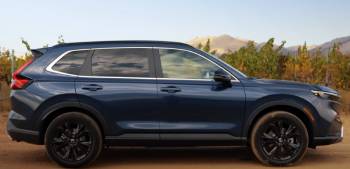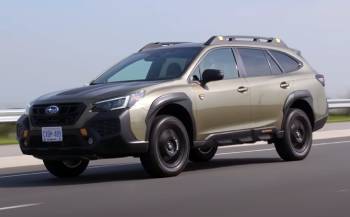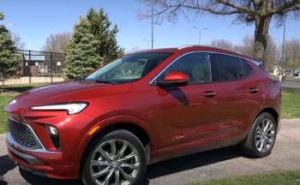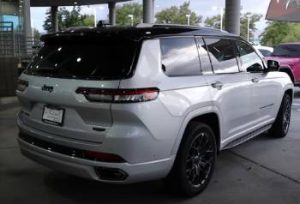The automobile world is buzzing, and the debate between the Honda CR-V Hybrid and the Subaru Outback has car enthusiasts divided. Both vehicles have their strengths and weaknesses, and deciding between them can be a tough choice.
Let’s delve into this comparison with a user-centric approach, focusing on the key features that make each of these vehicles shine.
A Brief Comparison Table
| Feature | Honda CR-V Hybrid | Subaru Outback |
| Powertrain | 2.0L 4-Cylinder + Electric Motor | 2.5L or 2.4L Turbocharged 4-Cylinder |
| Horsepower | Approx. 212 hp | 182 hp (2.5L) / 260 hp (2.4L Turbo) |
| Transmission | e-CVT | CVT |
| Drive System | AWD (Standard) | Symmetrical AWD (Standard) |
| City Fuel Efficiency (mpg) | Approx. 40 mpg | Approx. 26 mpg |
| Highway Fuel Efficiency (mpg) | Approx. 35 mpg | Approx. 33 mpg |
| Interior Design | Modern | Comfort-Oriented |
| Infotainment Screen Size | 7-inch | Standard or 11.6-inch |
| Standard Safety Features | Adaptive cruise control, Lane-keeping assist | Adaptive cruise control, Lane departure warning |
The Pros of the Honda CR-V Hybrid

- Fuel Efficiency
It’s in the name—Hybrid! The Honda CR-V Hybrid boasts impressive fuel efficiency, making it a perfect choice for those who prioritize fuel savings and reduced carbon footprints.
- Smooth Ride Quality
Owners often rave about the CR-V Hybrid’s comfortable and quiet ride, especially when running on electric mode.
- Spacious Interior
Need room for your family, or maybe just for a huge haul from the grocery store? The CR-V Hybrid doesn’t disappoint with its roomy interiors and cargo space.
The Cons of the Honda CR-V Hybrid
- Price Point
Hybrids usually come at a premium. The CR-V Hybrid is no exception, and its initial cost can be higher than some non-hybrid counterparts.
- Towing Capacity
While it has many perks, towing is not the CR-V Hybrid’s strong point. Adventurers looking to haul heavier trailers might be disappointed.
Also Read: Are Alzor Wheels Worth It?
The Pros of the Subaru Outback

- Off-Road Capability
The Subaru Outback shines where the road fades. Its all-wheel-drive system and increased ground clearance make it a formidable off-road contender.
- Safety Features
Subaru’s EyeSight Driver Assist technology has won accolades for its state-of-the-art safety features, which are standard in most Outback models.
- Larger Fuel Tank
For those long journeys where gas stations are sparse, the Outback offers a larger tank, ensuring fewer fuel stops.
The Cons of the Subaru Outback
- Fuel Efficiency
Compared to the CR-V Hybrid, the Subaru Outback doesn’t quite measure up in terms of miles per gallon.
- Size
Its larger dimensions might make it a bit more challenging to maneuver in tight urban spaces.
Key Differences Between Honda CR-V Hybrid and Subaru Outback
Understanding the distinctions between two such prominent contenders in the automotive world can be instrumental when making an informed decision.
Let’s dive deeper into the major disparities between the Honda CR-V Hybrid and Subaru Outback.
- Powertrain and Performance
Honda CR-V Hybrid:
The CR-V Hybrid sports a 2.0-liter four-cylinder engine combined with an electric motor. This combination allows it to produce a total of around 212 horsepower. It uses an electronic continuously variable transmission (e-CVT), which generally offers smoother transitions between speeds compared to traditional transmissions.
Additionally, the hybrid powertrain provides the dual advantage of instant electric torque and gas-powered range, allowing for both brisk acceleration and extended travel distances.
Subaru Outback:
The Outback, on the other hand, offers multiple engine options. The standard is a 2.5-liter boxer four-cylinder producing about 182 horsepower. There’s also a more powerful 2.4-liter turbocharged boxer engine available in some trims that offers 260 horsepower.
All trims use a continuously variable automatic transmission (CVT). While it lacks the hybrid option, the Outback’s powertrain is notably robust, especially with the turbocharged engine.
- Drive System
Honda CR-V Hybrid:
While the standard Honda CR-V offers front-wheel drive with an optional all-wheel drive, the hybrid version comes standard with all-wheel drive. This means it can handle various terrains and weather conditions relatively well.
Subaru Outback:
The Outback is legendary for its standard symmetrical all-wheel drive. This system is known for its excellent handling in off-road conditions and inclement weather, offering stability and confidence for the driver.
- Fuel Efficiency
Honda CR-V Hybrid:
Being a hybrid, the CR-V Hybrid offers impressive fuel economy numbers. Depending on the driving conditions, it achieves approximately 40 miles per gallon (mpg) in the city and 35 mpg on the highway.
Subaru Outback:
While the Subaru Outback’s fuel economy is commendable for its class and size, it falls short compared to the CR-V Hybrid. The standard engine offers about 26 mpg in the city and 33 mpg on the highway.
- Interior and Cargo Space
Honda CR-V Hybrid:
The CR-V Hybrid has a modern interior design with high-quality materials. It provides ample space for passengers in both the front and back rows. Its cargo space is also notable, though slightly less than the non-hybrid CR-V due to the battery placement.
Subaru Outback:
The Outback boasts a spacious cabin with a design geared towards comfort and practicality. It slightly edges out the CR-V Hybrid in terms of cargo space, making it a go-to for outdoor enthusiasts and families alike.
- Infotainment and Technology
Honda CR-V Hybrid:
The CR-V Hybrid offers a 7-inch touchscreen infotainment system, Apple CarPlay, Android Auto, multiple USB ports, and a range of driver assistance features, including adaptive cruise control and lane-keeping assist.
Subaru Outback:
Subaru’s STARLINK system stands out with an available vertical 11.6-inch touchscreen in some trims. Standard features include Apple CarPlay, Android Auto, and a host of safety technologies like adaptive cruise control and lane departure warning, courtesy of its EyeSight suite.
Also Read: Are MSW Wheels Worth It?
FAQ Section
No. While the Honda CR-V has ample space inside, the Subaru Outback is generally longer and has a larger footprint.
Both vehicles have excellent safety ratings, but the Subaru Outback has a slight edge with its EyeSight technology.
The Honda CR-V and Honda Passport are often compared to the Subaru Outback in terms of size and capability.
The Toyota RAV4 Hybrid is a direct competitor to the Honda CR-V Hybrid in the hybrid SUV segment.
While both brands offer quality vehicles, Subaru is often perceived as slightly more premium, especially in terms of off-road capabilities.
The Subaru Forester is often viewed as the direct competitor to the Honda CR-V in the compact SUV category.
Closing Thoughts
Whether you’re team Honda CR-V Hybrid or Subaru Outback, it’s evident that both vehicles have a lot to offer. Your choice will ultimately hinge on what you prioritize more – fuel efficiency and a smooth ride or off-road capability and cutting-edge safety features. Whichever you choose, you’re in for a quality driving experience. Safe travels!
Choosing between the Honda CR-V Hybrid and Subaru Outback boils down to personal preference. If you’re inclined towards fuel efficiency and a smoother urban drive, the CR-V Hybrid is a clear winner. Conversely, if off-road prowess and a more rugged build appeal to you, the Outback is the way to go.



